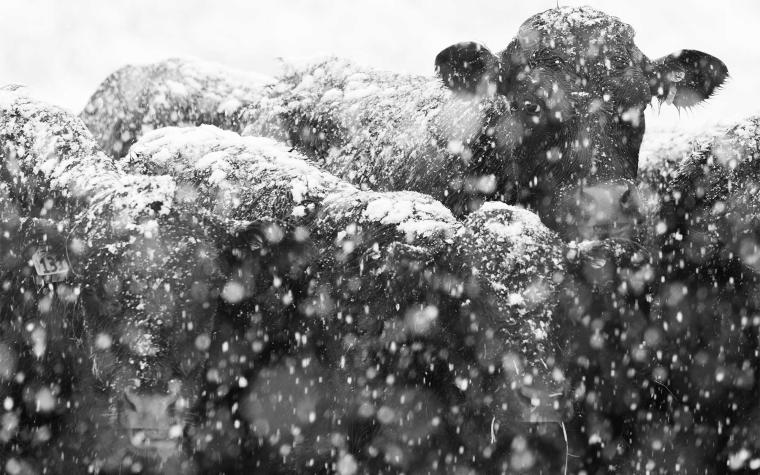COLUMBIA, Mo. – Extremely cold weather, ice and snow are putting Missouri cattle at risk. Temperatures below zero degrees Fahrenheit are predicted, with the wind chill factor much lower in many parts of Missouri this week.
As temperatures drop, producers need to ensure their cattle are kept safe in the harsh weather, said University of Missouri Extension state beef nutritionist Eric Bailey.
When the temperature is below the lower critical temperature (LCT), a cow in adequate body condition with a heavy winter coat will use energy to maintain body temperature, Bailey said. When wind chill dips below 19 F, cattle need extra energy to keep warm. They will eat more and need higher-quality feed to compensate for the cold.
“If cattle are still grazing stockpiled tall fescue, producers should consider feeding 0.5% of their body weight per day in supplement to provide extra energy during the extreme cold,” he said. “For a 1,200-pound beef cow, that’s 6 pounds of supplement each day. If feeding hay, put out higher-quality-than-average hay, and consider feeding the same amount of supplement as mentioned previously.”
Providing bedding or a dry place for cattle to lie down is very important in cold weather. Bulls can sustain long-term damage to fertility if forced to lie on frozen ground. Giving cattle a place to get out of the wind can also help them stay warm.
Lastly, Bailey said to keep waterers thawed as best you can. This can be difficult, especially in extreme temperatures. Mature beef cattle require up to 30 gallons of water per day.
Bailey said following these guidelines will help ensure the safety of cattle so they can continue to produce high-quality beef.
